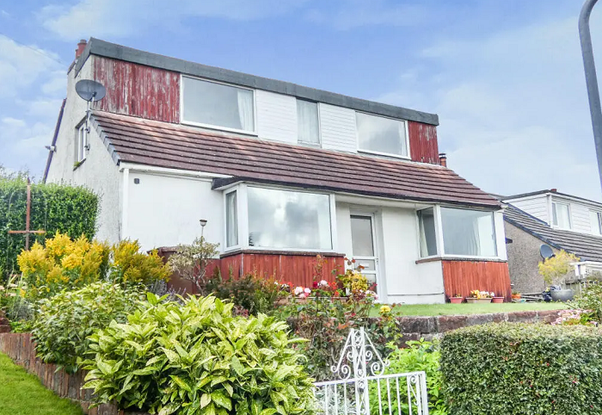For many, the idea of snapping up a bargain at an auction house in the UK is thrilling. The auction room buzzes with energy, and properties change hands in a matter of minutes. But while auctions can be a fantastic way to purchase property, they’re also fast-paced and require preparation. Whether you're a seasoned investor or a first-time buyer, understanding how UK property auction houses work can give you the confidence to bid wisely.
In this guide, we’ll explore the key steps of buying property at auction, the risks involved, and how to finance your purchase efficiently with Finance Hub.
Why Buy at a UK Property Auction House?
Buying property at an auction offers several advantages over the traditional estate agent route:
-
Speed: The entire purchase process is significantly quicker. Once the hammer falls, the sale is legally binding, meaning no lengthy negotiations.
-
Transparency: You see exactly what others are willing to pay, making it easier to gauge market value.
-
Potential Bargains: Properties at auction can sometimes be priced lower than on the open market, particularly if they need renovation or the seller is looking for a quick sale.
-
Unique Opportunities: Auction houses in the UK often list properties that aren’t available through estate agents, such as repossessions, commercial properties, or unusual homes.
However, buying at auction requires careful planning and financial readiness
How Do UK Property Auction Houses Work?
1. Finding an Auction House in the UK
The first step is to identify UK property auction houses that match your interests. Some of the most well-known include:
-
Savills One of the largest property auctioneers in the UK.
-
Allsop Specialises in both residential and commercial property auctions.
-
Barnard Marcus A popular choice for buyers seeking London properties.
-
Auction House UK A nationwide network of auctioneers covering a broad range of properties.
You can find auction listings on their websites or specialist platforms like EIG Property Auctions.
2. Reviewing Auction Catalogues
Each auction house publishes a catalogue weeks before the auction date. These contain details about available properties, including guide prices, legal information, and property conditions.
3. Arranging Viewings and Surveys
Unlike traditional house purchases, auction properties are sold ‘as seen.’ It’s crucial to:
-
Visit the property in person.
-
Commission a survey to uncover hidden structural issues.
-
Check for planning permissions and restrictions.
4. Understanding the Legal Pack
Each auction property has a legal pack, which includes:
-
Title deeds
-
Special conditions of sale
-
Local authority searches
-
Leasehold details (if applicable)
Hiring a solicitor to review the legal pack can prevent costly surprises.
5. Setting a Budget and Arranging Finance
Buying at auction requires you to pay a 10% deposit on the day and complete the full payment within 28 days. If you’re relying on finance, it must be arranged in advance.
This is where Finance Hub can help. Whether you need a bridging loan, development finance, or auction property loan, Finance Hub offers flexible solutions tailored to auction buyers. With quick approvals and competitive rates, Finance Hub ensures you’re financially prepared when bidding.
The Auction Day: What to Expect
On the day of the auction, whether you attend in person or online, it’s important to stay focused.
1. Registering to Bid
Most UK property auction houses require bidders to register in advance. You’ll need to provide identification and proof of funds.
2. Bidding Strategy
Start slow: Let the initial frenzy settle before placing your first bid.
-
Stick to your limit: It’s easy to get caught up in bidding wars, but overpaying can erode any potential profit.
-
Be decisive: Hesitation can mean missing out on a great deal.
3. Winning the Bid
If your bid is successful, you’ll need to pay a 10% deposit immediately and sign the contract. The remaining funds must be paid within the completion timeframe usually 28 days.
This tight deadline is why many buyers turn to Finance Hub’s auction finance solutions, which provide fast, reliable funding to ensure smooth transactions.
Risks and Challenges of Buying at Auction
While auctions offer great opportunities, they also come with risks:
-
Non-refundable deposits: If you fail to complete the purchase, you lose your deposit.
-
Unexpected costs: Buyers are responsible for any outstanding debts tied to the property, such as council tax or service charges.
-
Renovation expenses: Many auction properties require work, which can be more costly than anticipated.
A well-planned budget and thorough due diligence can mitigate these risks.
Financing Your Auction Property with Finance Hub
One of the biggest hurdles at auction houses in the UK is securing finance quickly. Banks often take weeks to approve mortgages, which isn’t ideal when you have just 28 days to complete.
Finance Hub provides:
Bridging Loans: Short-term loans to cover the purchase until long-term financing is arranged.
-
Development Finance: If you plan to renovate or develop the property.
-
Auction Finance: Fast-track funding designed specifically for auction purchases.
With Finance Hub, you get a streamlined application process, quick approvals, and tailored loan solutions to ensure your auction purchase goes smoothly.
Final Thoughts
Buying at a UK property auction house can be an exciting and profitable experience—but only if you’re well-prepared. Research, financial planning, and professional advice are key to success.
If you’re planning to bid at an auction house in the UK, make sure you have financing ready. Finance Hub is here to help you secure funding quickly and efficiently, so you never miss out on a great opportunity.
For expert guidance and tailored financing solutions, visit Finance Hub today!







